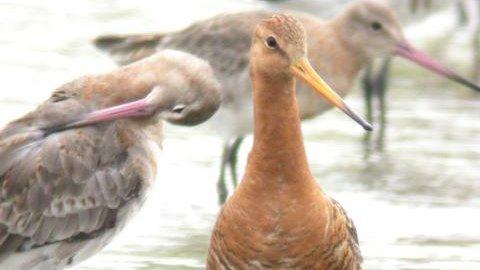Godwit eggs saved from muddy Fens fields
- Published
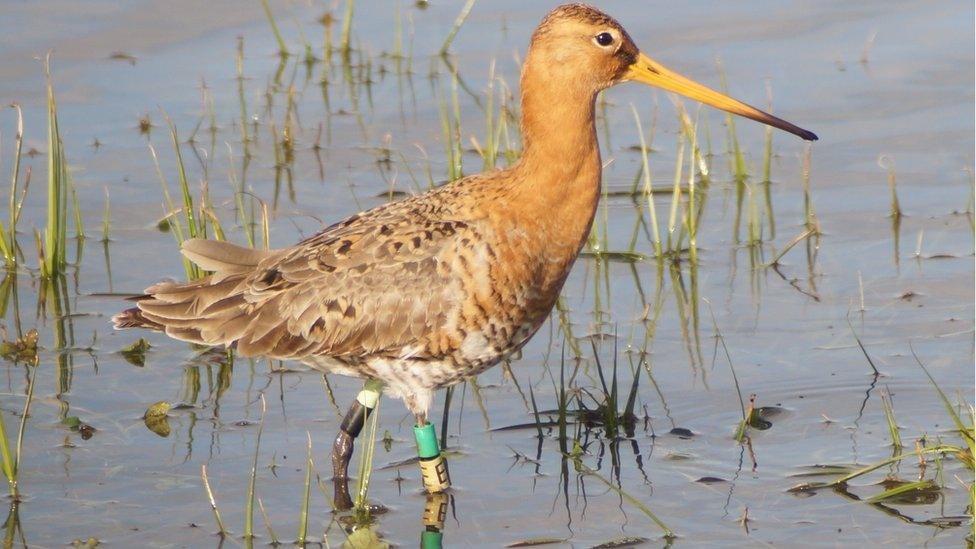
One of the birds released in 2017 back in the Fens at Manea
Out of 55 black-tailed godwit eggs saved from muddy flooded fields in The Fens, 38 chicks have been fledged in captivity this year.
Flocks returned to traditional ground-nesting sites at the RSPB Nene Washes nature reserve in Cambridgeshire from March onwards.
Laying began, but many eggs quickly became stuck in the wet mud.
Operation Godwit collected 32 eggs from cultivated farmland and 23 from wild grassland at the reserve.
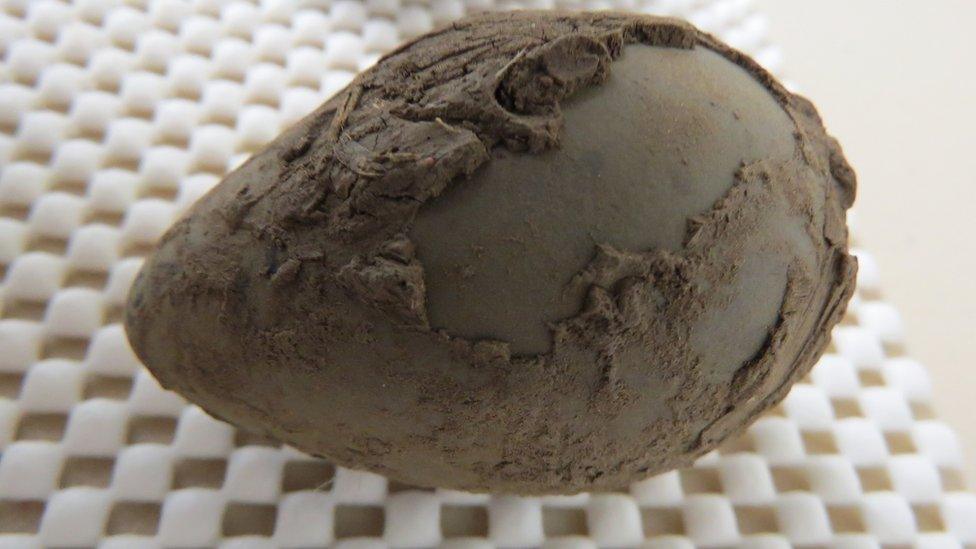
One of the eggs recovered from the mud before incubation started
"When we rescued the eggs we were very worried that the chicks might not survive due to the muddy conditions of some of the eggs," project manager Hannah Ward said.
"It was quite a nerve-wracking wait to see if any of them would hatch.
"Meanwhile, our team on the nature reserve worked hard to make sure that when the water receded, there were areas where more godwits could nest in safety away from the flood.
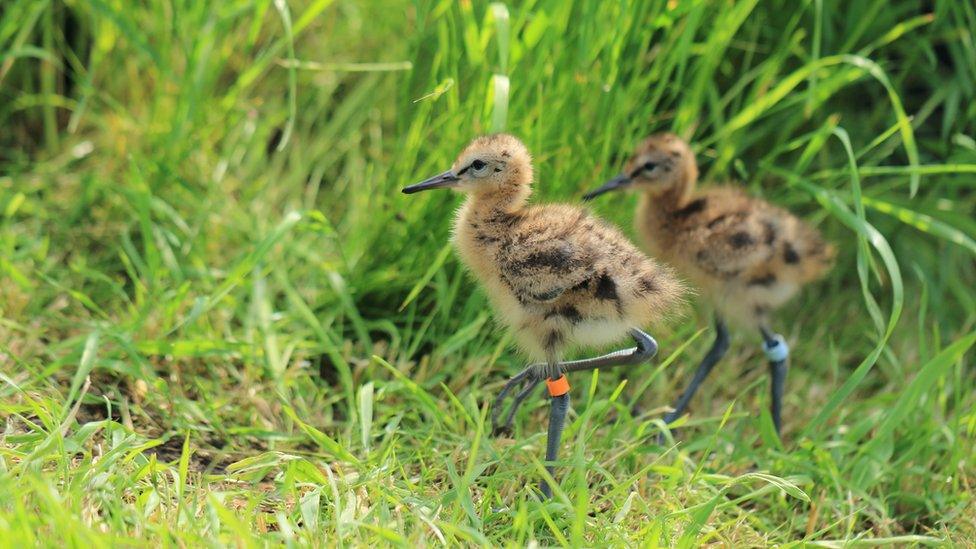
Black-tailed godwit chicks inside the rearing aviary

Black-tailed godwit population statistics for the UK
black-tailed godwits primarily nest in The Fens, which therefore accounts for almost all statistics, with a handful recorded elsewhere in the UK
breeding pairs became extinct in the UK from the mid-1900s until 1952, when they were again spotted in The Fens
recent peak number of breeding pairs - 64 in The Fens in the mid-1970s
the current figure of 38 breeding pairs in The Fens is also the recent lowest
about 44,000 birds arrive from Iceland in the winter, but return to breed in summer
Source: WWT

The eggs were incubated, hatched and cared for at the Wildfowl & Wetlands Trust centre at Welney in Norfolk.
They later joined wild flocks, which included 18 wild-hatched chicks and nine black-tailed godwits who were released as youngsters last year.
Nicola Hiscock, senior aviculturist from WWT, said: "Two godwit chicks raised at Welney last year had families of their own which is a really good sign the methods we're using are working."
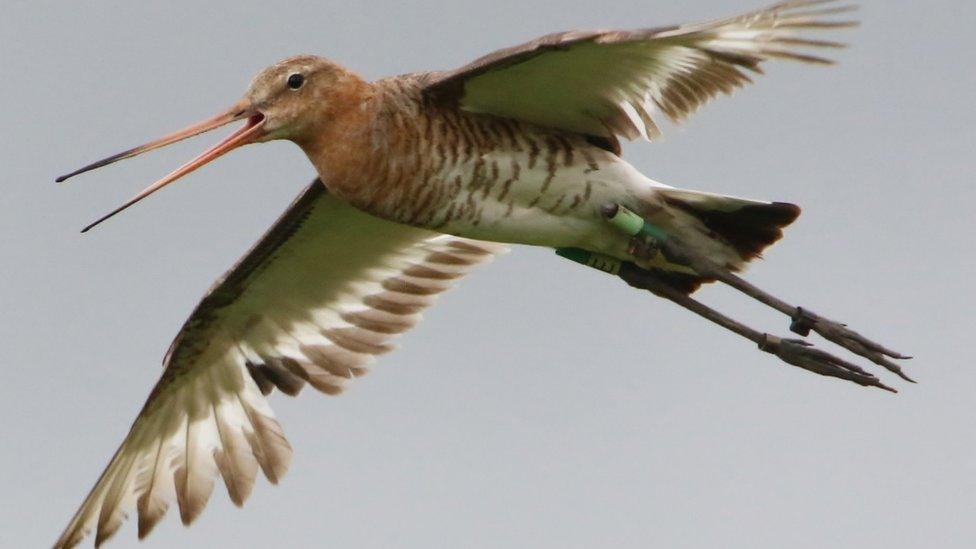
Flocks of black-tailed godwit had a successful breeding season despite the spring weather bringing floods to nesting grounds
- Published24 April 2018
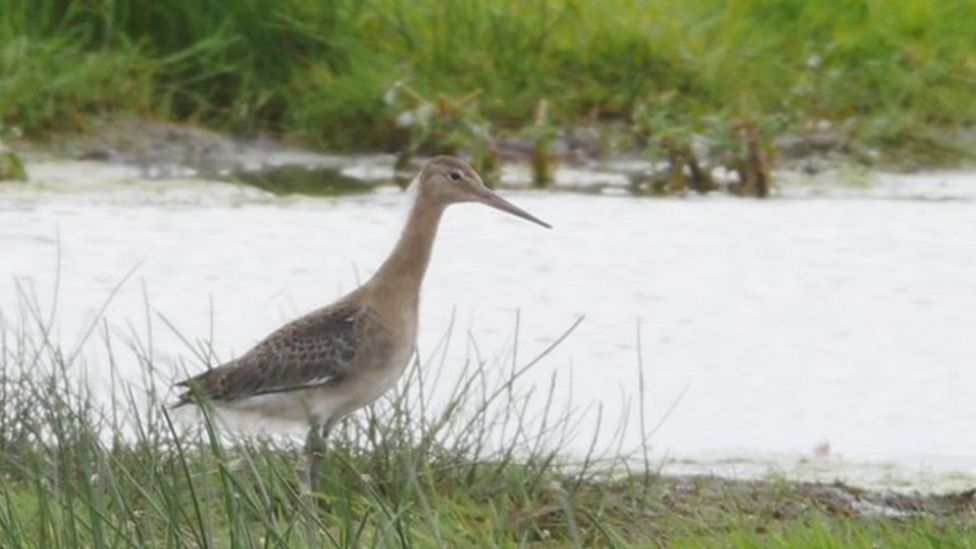
- Published12 May 2017
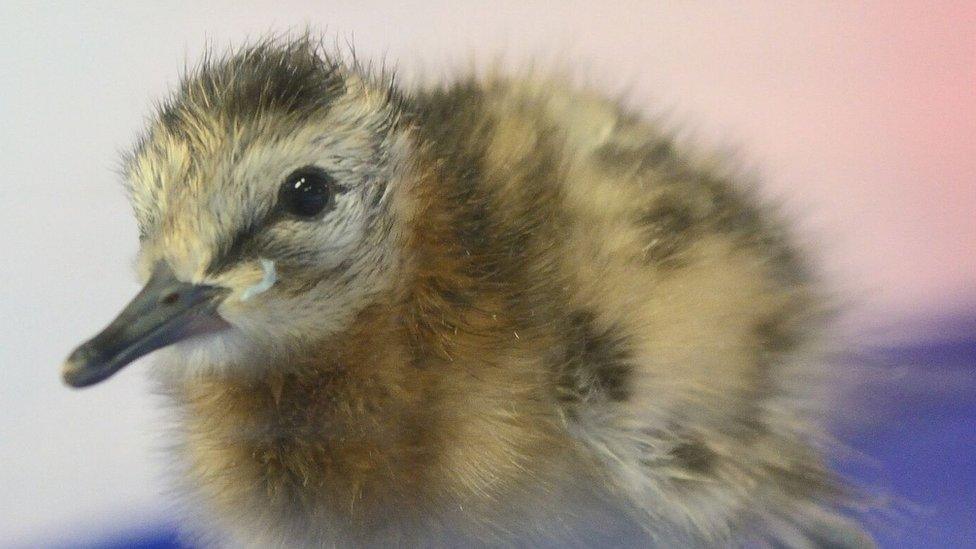
- Published13 June 2017
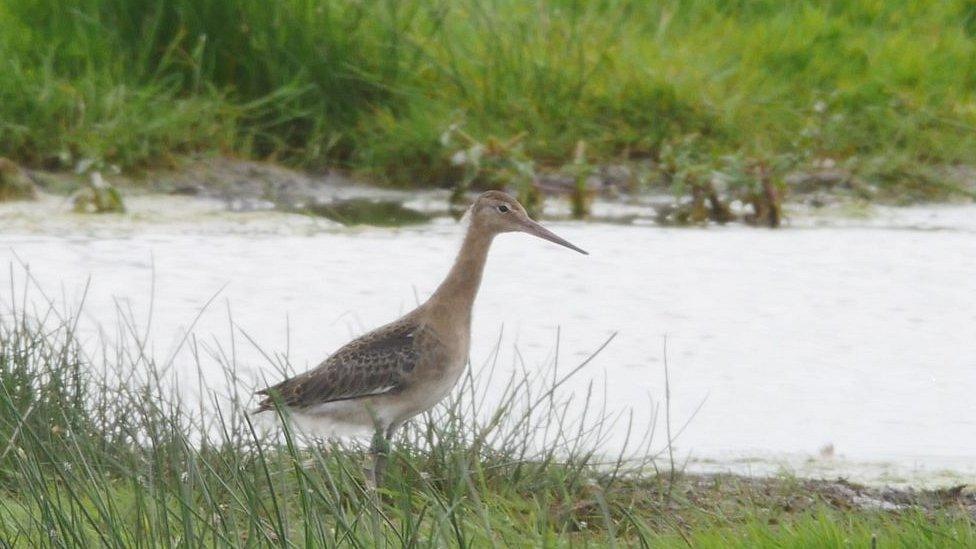
- Published29 November 2014
